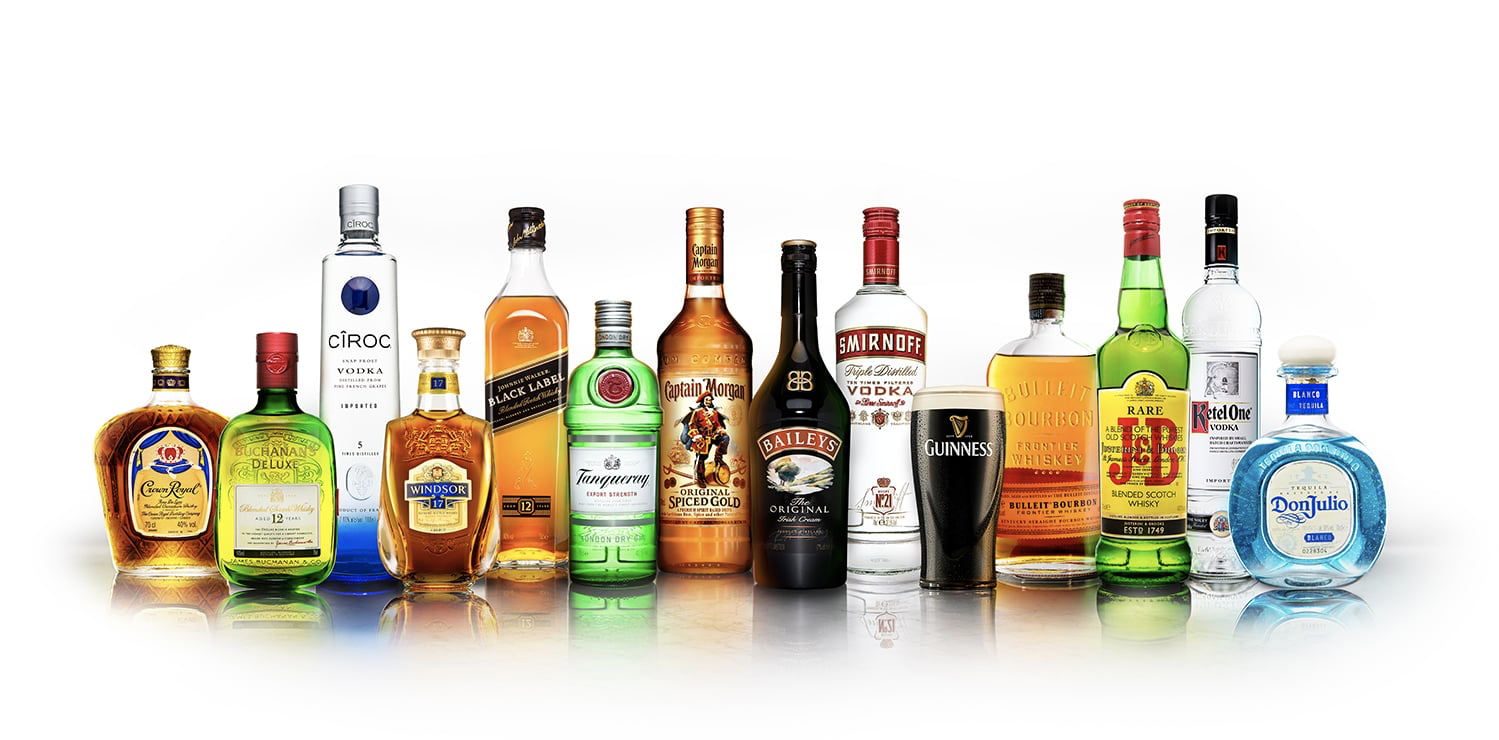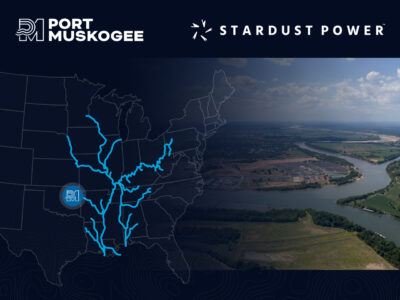If you’re a beer lover, cover your eyes: the market share of spirits in the U.S. alcohol industry has increased from 28.7% to 41.3% in the past 20 years, while beer’s market share has dropped from 55.5% to 42.5%. In 2022, looking at the total sales volume for U.S. liquor, Vodka topped the list with almost a third of total sales, whiskey (including bourbon) came in second, and gin was the most popular spirit choice for younger Americans and fifth overall.
Such a competitive, growing industry means a lot of different products to sort through. Luckily, we’ve covered a lot of companies, and we’ve compiled our list of sustainable and philanthropic brands — in one place.
California

Photo Courtesy Gray Whale Gin
Gray Whale Gin
Marsh and Jan Mokhtari were driving northbound on the Pacific Coast Highway when they spotted a Gray Whale and its calf near the coast. The couple was inspired by the sight of the massive creatures undergoing their 12,000-mile journey, the longest-known migration in the world.
In 2016, they formed the Golden State Distillery to craft their new spirit: Gray Whale Gin. The gin is made with local ingredients that can be found along the Pacific Coast, mimicking the whales’ migratory path up and down the coast. The bottle design takes it a step further by tracing the gray whales’ pattern and listing all the local ingredients used, like sea kelp and limes.
Every bottle sold supports Oceana, a nonprofit working to preserve and protect the world’s oceans, and 1% For the Planet, an international organization supporting environmental causes. After use, the gin bottles are upcycled into scented candles and sold on the company website. Gray Whale Gin is a great option if you want your dollars to do double duty — helping the planet while enjoying a cocktail.

Photo Courtesy Buzzbox
Attending live events like sports games, concerts, and festivals generally promise two things: it will be loud, and there will be a lot of beer. Getting an actual “bar drink” is almost impossible. Glass bottles are being banned in more venues, and storing the ingredients needed to make classic cocktails at different booths and stations would require too many moving parts.
Enter Buzzbox, which produces ready-to-drink cocktails in sustainable, biodegradable cartons — with more volume than typical cans.
The recyclable cartons have nixed straws for caps (shoutout to turtles), cost less to produce than cans or bottles, and offer a new type of beverage for predominantly wine and beer-oriented live venues.
The different ingredients for the cocktails are sourced locally from California, where the company operates a sustainable 65,000-square-foot production facility. If you’re looking for a buzz from a biodegradable beverage, look no further than Buzzbox.
Kentucky

Photo Courtesy Zhivko Minkov
Founded in 1953, Maker’s Mark, which produces nearly 24 million bottles of bourbon annually, recently attained B Corp status, making it the world’s largest distillery to achieve the certification. The bourbon distiller’s brand message is to “Make Your Mark. Leave No Trace,” and its recent initiatives certainly fit the bill.
The company’s 1,400-acre Star Hill Farm distillery uses 1,100 acres to cultivate new grain species, operates under a zero landfill waste initiative and recycling program, and established a natural water sanctuary to protect its watershed.
The bourbon maker also partnered with the University of Kentucky and Independent Stave Company to create the White Oak Tree Improvement Repository.
American white oaks are critical for the production of bourbon (which is not whiskey). Whiskey becomes bourbon when the grain mix is at least 51% corn and aged in “new, charred oak barrels.”
White oaks are not the only tree that fits this description, but their superior taste and lack of leaks make them the optimal choice for bourbon distillers like Maker’s Mark. Buying from this distiller is a win-win transaction for the bourbon drinker who loves trees.

Photo Courtesy justinedgecreative
Bourbon distillery Buffalo Trace is also fighting to protect American white oaks. The company recently partnered with the University of Kentucky for a 15-year tree planting and research project centered around sought-after trees. The team planted more than 1,000 of them at the Buffalo Trace distillery, and the research will focus on the best practices for planting and growing seedlings.
Over the next few years, different varieties of seedlings from various states and regions will be planted and compared. The new data should broaden the industry’s knowledge of white oak seedlings, maintaining sustainable populations, and creating more resilient trees.
Buffalo Trace is also experimenting with sustainable initiatives around its distillery, just like Maker’s Mark — well, sort of. Instead of creating a water sanctuary, the distillery’s parent company, Sazerac, is experimenting with asphalt. The roads leading to its whiskey warehouses are made from NewRoad Asphalt, a mixture of recycled plastic and asphalt. If you’re on the path toward sustainable spirits, you’ll certainly come in contact with Buffalo Trace.
New Mexico

Photo Courtesy Dry Point Distillers
Pistol Pete’s Six-Shooter Rye Whiskey
The desert college town of Las Cruces, New Mexico, is home to New Mexico State University (NMSU) and America’s first collegiate-licensed liquor: Pistol Pete’s Six-Shooter Rye Whiskey.
It’s not NMSU’s first foray into alcohol-related partnerships. The university collaborated with a local brewery to create Pistol Pete’s 1888 Ale and a local winery to create Pistol Pete’s Crimson Legacy. Named after the school’s mascot, a portion of the proceeds go toward NMSU’s athletics program, raising thousands of dollars in the process.
After the branded beer and wine partnerships, the next natural step was to partner with a local distillery for a branded spirit.
Dry Point Distillers, a local distillery owned and operated by university alum Chris Schaefer, was the perfect match. The first collegiate-branded whiskey launched in late 2020, helping Schaefer survive during the peak of the COVID pandemic.
Tennessee

Photo Courtesy Jack Daniel’s
Jack Daniel’s Tennessee Whiskey
Few alcoholic beverages can claim as great a marketing jingle as Tennessee Whiskey (shoutout to Chris Stapleton), but not many brands are as sustainable as the iconic Jack Daniel’s. The distiller employs many sustainable practices, from zero-waste efforts to upcycling products, but it all starts with its parent company, the Brown Forman Corporation.
The wine and spirits producer bought wind power credits to offset the equivalent of 30,000 American homes and pledged to reduce greenhouse gas emissions by 15% by 2023. Jack Daniel’s runs and operates a zero-waste distillery, meaning it uses only necessary packaging materials and collaborates with outside companies to divert waste and scale recycling processes.
Every year, the distiller sends about 36 tons of waste for long-term wood alternatives and sells another 160 tons of spent charcoal to companies producing smoking pellets. If you’re looking for a whiskey with a big taste and a smaller footprint, you can’t go wrong with Jack Daniel’s.

Photo Courtesy Uncle Nearest Premium Whiskey
Uncle Nearest is the world’s most successful Black-owned distillery. Founded in 2017, the company reached $100 million in sales by December 2022, with even more projected for this year.
The award-winning whiskey brand has only been around for a few years, but its namesake and source of inspiration, Nathan “Nearest” Green, lived in the 1800s. In Tennessee, a formerly enslaved man named Nathan Green crafted the best whiskey around. Just ask Jack Daniel, who was taught how to distill whiskey by Green! Some people mistook his name, Nathan, as “Nearest,” spawning his famous nickname.
CEO Fawn Weaver leads the first all-female executive team in the whiskey industry. Victoria Eady Butler, Nathan Green’s great-great-granddaughter, is the company’s Master Blender.
The whiskey brand is using its stunning growth to help others: the company has a multitude of philanthropic initiatives centered around education and entrepreneurship for Black and minority-owned businesses. If you want to support a Black-owned business, don’t go too far from Uncle Nearest.
Texas

Photo Courtesy Tito’s Vodka
Gluten-lovers and gluten-haters have one thing in common: a love for Tito’s Vodka. The Austin, Texas-based brand has become an iconic American alcohol staple, and its slogan, “Love, Tito’s,” alludes to the company’s community-based approach toward giving back.
Love, Tito’s has grown into the brand’s largest nonprofit extension, leading efforts to clean up after natural disasters, fund academic research, and support underprivileged and underserved communities.
The vodka maker launched Block to Block in 2019, a program partnering with nonprofits nationwide to build and grow community gardens and farms accessible to all. In addition to programs like this, Tito’s has also partnered with One Good Turn to provide medical services and education, supplied vodka-based hand sanitizers when supplies ran low, and donated over $10M for COVID-19 relief services.
If you’re looking for a simple, refreshing vodka, Tito’s is the great, sustainable option.
Vermont

Photo Courtesy Valerie Sampson
Caledonia Spirits’ Barr Hill Gin
Caledonia Spirits’ Barr Hill Gin is an award-winning gin made with real honey. The two founders, a home brewing supply store owner and a beekeeper (gasp), began gin distilling in 2011. Before long, the two were distilling multiple batches daily and winning awards for their honey-based gin.
Honeybees are in danger from rising global temperatures, habitat loss, increased natural disasters, pesticides, air pollution, lack of nutrition, and parasites.
Since 2017, the distillery has been supporting bees in a unique way: Bee’s Knees Week. The social media campaign spreads awareness for pollinator protection.
During the week, the brand asks participants to share a photo of the signature Bee’s Knees cocktail and tags Barr Hill Gin on social media. The distillery will plant 10 square feet of bee habitat for every shared image. The company recently pledged to save 250,000 square feet of pollinator habitat. Give Barr Hill Gin a try if you’re a fan of honey or bees.
Washington, D.C.

Photo Courtesy Don Ciccio & Figli
Don Ciccio & Figli, an Italian liqueur maker in Washington, D.C., wasn’t supposed to make it this far. Vincenzo Amodeo began hand-crafting liqueur recipes off the coast of Italy in the late 1800s, but World War I put the practice in dire jeopardy.
After surviving years and another world war, his relative, Don Ciccio, found the recipes in 1951 and resumed the practice, but an earthquake ruined any hopes of success. Generations after Vincenzo first crafted the famous liqueurs, a 29-year-old Francesco Amodeo, Don Ciccio’s grandson, opened Don Ciccio & Figli in America’s capital, offering fine Italian liqueurs for all to enjoy.
The liqueur-maker is a generational success story full of hardships and triumphs, yet, the family’s commitment to quality ingredients shines through it all. “Never compromise the flavor, always respect the ingredients,” says Francesco. If you’re looking for a liqueur steeped in tradition and resilience, try a taste of Don Ciccio & Figli.
International

Photo Courtesy Diageo
Even if you haven’t heard of Diageo, you probably know some of its brands: Johnnie Walker, Guinness, Baileys, Smirnoff, Captain Morgan, Don Julio, Ciroc, and Ketel One.
In 2020, the alcoholic beverage company released plans for ambitious, climate-related goals called “Society 2030: Spirit of Progress.” They align with the United Nations Sustainable Development Goals (SDGs) in three main areas: promoting positive drinking, championing inclusion and diversity, and pioneering grain-to-glass sustainability.
Some of its specific goals include achieving net-zero carbon emissions across direct operations, reducing current water use in production processes by 30%, and deploying 150 community projects for cleaner, accessible water worldwide. Given Diageo’s massive range of brands, if you’re looking for any type of sustainable alcohol, you can find it in Diageo’s catalog.

Photo Courtesy Elephant Gin
Elephant Gin is what it sounds like — an exotic liquor that gives back to elephant protection programs and the local African villages sourcing its botanicals. The German company distills its gin in small batches using local ingredients from Germany, like apples, and Africa, like African wormwood.
The bottles are designed with beautiful calligraphy and are entirely plastic-free, reducing their environmental impact. Elephant Gin also uses recyclable packaging and creates recycled paper from elephant droppings (talk about ingenuity!).
The distillers are also putting their money where their mouths are. Fifteen percent of all bottle profits are donated to the endangered African elephant cause, and its spinoff nonprofit, the Elephant Gin Foundation, has contributed over $1 million to partner foundations. If you’re looking for a gift for an elephant and gin-loving friend, Elephant Gin is a perfect choice.

Photo Courtesy Pernod Ricard
Irish Distillers and Pernod Ricard
Irish whiskey is on a redemption arc. Famous liquor brands have struggled to compete with an ever-changing alcohol consumer market for the last decade. However, two companies, Irish Distillers and Pernod Ricard, have brought Irish whiskey into the modern era with missions to make their distilleries as sustainable as possible.
Irish Distillers invested close to $50 million to make a distillery in Cork, Ireland, carbon neutral by 2026.
Future endeavors will include switching distillery boilers to green hydrogen instead of natural gas. Transitioning to renewables for distillery energy is imperative to have all Irish Distillery brands reach carbon neutrality by 2050.
The distilleries are also committed to agricultural practices around alcohol, like working with local farmers in the Irish Farmers Association and supporting the long-term viability of Irish barley farming through the Sustainable Green Spring Barley Scheme.
As the alcohol industry introduces new sustainability requirements, Irish whiskey producers are finding new, innovative ways to lessen their environmental impact and increase their support for local farmers. If you’re interested in a good-tasting whiskey, check out these brands.

Photo Courtesy Suntory
Whiskey maker Suntory has been running its Hakushu distillery in Japan on clean electricity for years, but it’s planning a company-wide shift to green hydrogen. While some craft breweries and distilleries have moved toward solar and wind-powered operations, Suntory’s shift to green hydrogen is a big step for an industry resistant to change.
The single-malt whiskey maker’s ethos is steeped in respect for nature. Its green hydrogen plan solidifies this commitment: the beverage maker aims to be fully carbon neutral by 2050. As of now, only the company’s beverage production runs on clean energy. However, installing a massive, 16-megawatt electrolyzer will help two of its facilities transition to hydrogen power.
Suntory’s chief sustainability officer said the electrolyzer could even power the community around its distillery, showing another potential benefit of green hydrogen. If you’re looking for a low-emission whiskey, look no further than Suntory.





